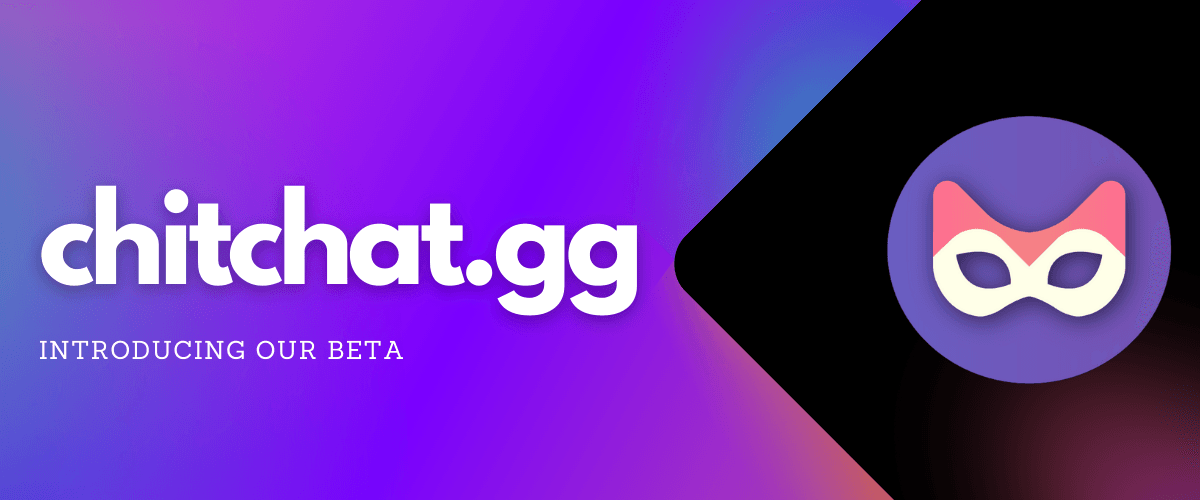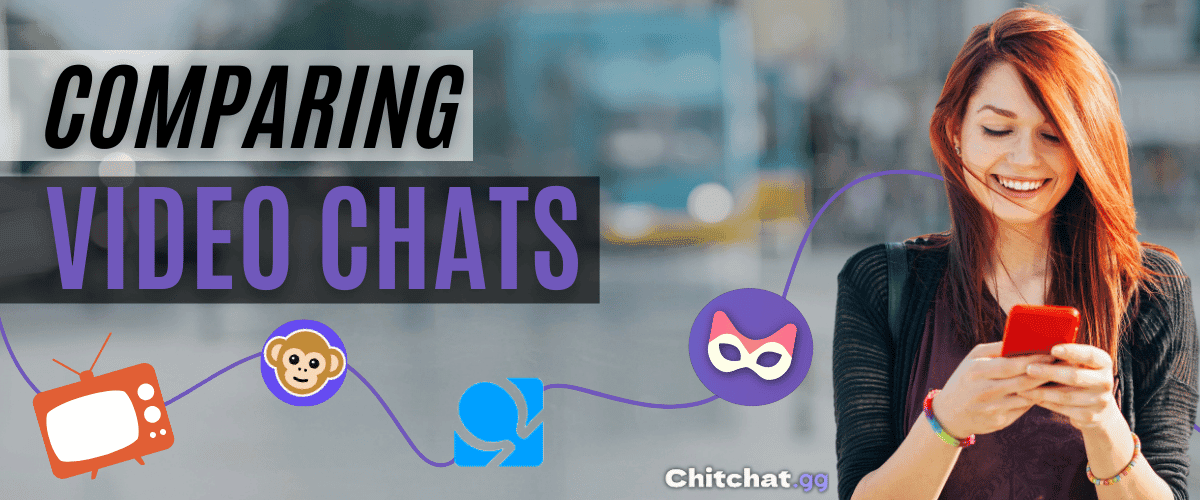
RIP Omegle: Goodbye to the Chatroom That Traumatized Us (And What Comes Next)
- Talina
- Comparisons
- 16 Nov, 2023
Note: This article contains descriptions of online child abuse and self-harm
How an Entire Generation Became Victims of Abuse on Omegle
There’s an entire generation that became a target for abuse on this video chat site - without their parents knowing anything.
On Omegle, it would only take a few minutes before inappropriate content would appear in the webcam section. Whether it be people exposing themselves or pleasuring themselves, Omegle was known for these instances. Omegle became a staple for many teenagers, a part of their childhood. Whether during a sleepover with friends or alone on the family computer, the site was a part of it. For many users, it became a regular pastime. One after another, inappropriate content would flash up on the screen, you’d see a penis, someone moaning, another one undressing. Whatever you could imagine, it would be there. The teens using the website would use this as an opportunity to humiliate those exposing themselves, laughing at them or threatening to report them to the authorities.
If the content wasn’t entertaining enough, a simple click on “next” promised more fun. And so the routine of clicking yourself through Omegle began. While most teenagers who used Omegle regularly were not looking for inappropriate content, these encounters would still happen frequently. Omegle was designed extremely flawed in the aspect of keeping all of their users safe. Maintained for 14 years, Omegle is now nothing dead anonymous chat room.
Why did teenagers start using Omegle in the first place?
In 2012, social media and its endless possibilities felt new and exciting to most teenagers. Many innovations that are now intertwined with our daily lives, such as the iPhone, Instagram, and Tumblr, were relatively new at the time. Teenagers and children who grew up during that period became the guinea pigs of the internet era. It was theirs to explore, and neither parents nor politicians had a clear understanding of it. One can safely assume that parents would be horrified if they knew who their teenagers were meeting on Omegle.
Founded in 2009, Omegle's primary purpose was to pair users randomly for one-on-one video chats. Its tagline read, "The internet is full of cool people. Omegle lets you meet them." However, who you'd encounter was unpredictable, as users weren't required to provide a username or profile picture. An account wasn't even necessary before you were connected with anyone else, regardless of their age, who was online at the same time, anywhere in the world. This anonymity was alluring to users, adults and teenagers alike. Teenagers especially would use “interest-tags” to filter the people they would match with - Justin Bieber, Ariana Grande, One Direction.
Court documents show that sexual predators used the site to encourage children and teenagers to perform sex acts. They showed them pornography or even lured them to meet in real life. A lawsuit against Omegle declared that the “most regular and popular use” of the site was “live sexual activity, such as online masturbation.”
It’s obvious that these are two different worlds colliding. The teenager asks, "Who's your favorite member of 1D?”, the predator responds “take your top off” through a black screen.
What caused the downfall of Omegle?
Soon after its launch, Omegle gained a wide spread reputation as a platform struggling with the prevention of child sexual abuse. The Department of Justice has frequently mentioned Omegle in its publications, announcing the sentencing of people convicted of sex crimes.
As we’ve mentioned in our previous article, in 2021, Omegle was allegedly sued for having a “defectively designed product” and enabling sex trafficking after the service matched a girl, 11 at the time, with a man who later sexually abused her.
In early November, 14 years after its launch, Leif K-Brooks, founder of Omegle, announced the sites shutdown. The company was sued by a woman accusing the site of randomly pairing her with a predator. The $22m lawsuit alleged that when she was 11, she encountered a man on Omegle who groomed her into three years of “sexual servitude”. The site has been mentioned in at least 50 cases against predators in recent years
According to Carrie Goldberg, whose firm represents the girl, Omegle’s shutdown was a result of mediation between the platform and her client.
The National Center for Missing and Exploited Children (NCMEC) collects reports of suspected child sexual abuse material from tech platforms.
The issue of abusive material and child sexual abuse has become a widespread issue, affecting nearly every social media platform. Omegle submitted over 608,000 reports to NCMEC, while Instagram submitted more than 5 million and Facebook submitted over 21 million.
Could the abuse on Omegle have been prevented?
Children often feel they know more than adults, and when it came to the internet, they genuinely did at that time. This created a strange contradiction. They sat in school, listening to teachers warning about the dangers of talking to strangers on the street, meanwhile, potential predators could reach us directly from their bedrooms.
In his long statement announcing the shutdown of Omegle, founder Leif K-Brooks claimed he had set up the site to fulfill the “basic human need” of “meeting new people”. He acknowledged the site had been used by some users “to commit unspeakable heinous crimes.”
“Virtually every tool can be used for good or for evil, and that is especially true of communication tools, due to their innate flexibility,” he writes in the letter to his community. “The telephone can be used to wish your grandmother ‘happy birthday’, but it can also be used to call in a bomb threat.”
He argued, “the battle for Omegle has been lost”. In retrospect, it seems difficult to imagine Omegle becoming anything other than a hotspot of abuse. While the site provided amusement to some, it traumatized an entire generation that gained unprotected and premature access to the internet.
What do new Omegle alternatives do differently?
An important point to note is that, despite promoting and advertising themselves as alternatives to Omegle, most chat sites don’t simply copy it, instead offer a different product as an alternative to the site. They created their own communities, but often find themselves overshadowed by Omegle's size and popularity.
Some of these alternatives offer video chat, group chats or just quick, simple text chats, like Chitchat.gg. While we did market ourselves as “the new Omegle alternative”, we do believe to have better features, protection and moderation than Omegle ever did. Being roughly 6 months old, Chitchat.gg is a rather young and new platform compared to other sites. Chitchat.gg brings a fresh wind to the community of online chatting, surprising with advanced moderation features that protect the website of Omegle’s past mistakes.
We strictly prohibit anyone under the age of 18 from using our service and take robust measures against those attempting to bypass this rule. While we believe everyone deserves their space on the internet, enforcing this policy is critical to ensuring the safety of minors and ourselves.
Chitchat.gg is proud to have a dedicated team of moderators who work tirelessly around the clock. Their primary focus is to ensure the safety and security of all users while they enjoy chatting on our platform. They constantly monitor reports, ensuring that users adhere to our community guidelines and standards. This diligence helps to maintain a respectful and welcoming environment for everyone on Chitchat.gg. All users can contribute to maintaining the environment by reporting disruptive users to the moderators.
Thanks to our active Discord server, we are not only closely connected but also tightly knit with our community. This ongoing engagement allows us to foster a strong sense of camaraderie and shared purpose, which ultimately enhances our collective experience and allows us to better serve the interests and needs of our community members. Our Discord Server offers an easy way to contact the team of the website, ask questions, get support or even submit bugs, suggestions and feature requests.





